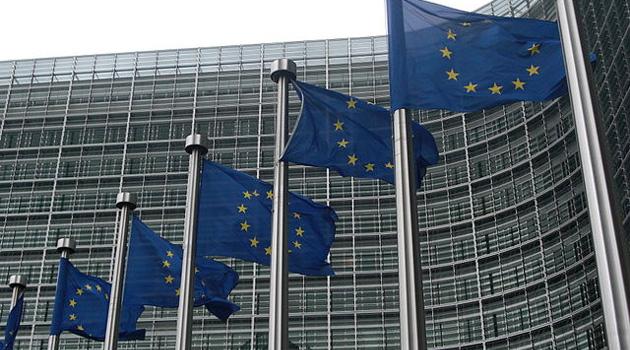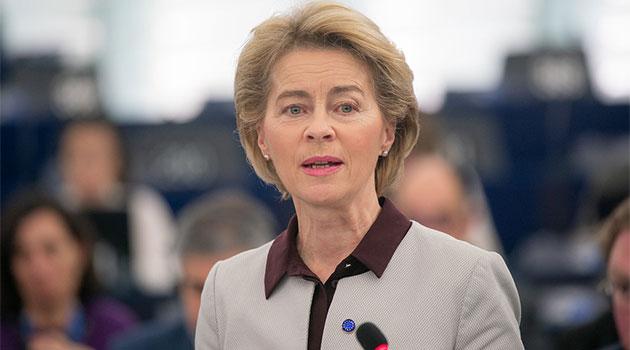European Commission acknowledges racism is structural and beefs up the fight against racial discrimination

A plan just published by the European Commission (EC) to combat racism includes among its main points better monitoring of the upholding of EU rules about the ban on discrimination and calling on Member States to better prevent racial discrimination being committed by police units, and the EU executive is admitting that the European bloc is still behind in terms of its approach toward racially-motivated discrimination and intolerance. The EC therefore is determined, among other matters, to redress the situation within its own ranks and to ensure the corps of EU officials is balanced in terms of ethnicity.
“It is time we stopped talking about why we need to act. It is time to act,” declared Commission Vice-President Věra Jourová, who is responsible for the agenda of Values and Transparency.
Jourová was referring to the fact that while EU agents and leaders have long made it clear that racism must be combated, they have not always done so in practice. EC President Ursula von der Leyen, in a speech on the State of the Union on 16 September, said “progress on fighting racism and hate is fragile – it is hard won but very easily lost.”
“So now is the moment to make change,” von der Leyen said. “To build a truly anti-racist Union – that goes from condemnation to action.”
Yesterday the EC called on the Member States to more effectively prevent racially-motivated discrimination by police and to do their best to increase public trust in the security services, a response to the fact that in association with the wave of protest in the United States of America this year, demonstrations were also held against the discriminatory approach taken by police in several European cities. “We have reached a moment of reckoning,” Vice-President Jourová said.
“The protests sent a clear message – change must happen now. It won’t be easy, but it must be done,” the EC VP said.
“We are going to work harder on this. We won’t shy away from strengthening the legislation, if needed,” Jourová warned.
“The Commission itself will adapt its recruiting policy to better reflect European society,” she said. Some MEPs and NGOs have reproached the EC for not being active enough in combating racism.
EC President von der Leyen took office last year saying that she wanted to achieve a balanced number of men and women at the EC, which she has almost managed to achieve. Critics, however, are pointing out that her 27-member team is 100 % white.
In association with that observation, the EC wants EU institutions to ascertain what the ethnic distribution among their employees is. The EC itself is determined to “undertake steps toward significantly increasing the representativeness” of the collective of more than 30 000 people who work for it, according to a press release.
Commissioner for Equality Helena Dalli said Friday that “There is no place for racial discrimination and racism of any kind in democratic societies. We must all strive for our societies to be anti-racist.”
“With this action plan, we acknowledge that racism is not only perpetrated by individuals but is also structural,” Dalli said. “Therefore, we need to address it at all levels of governance to turn the tide.”
“This is why, amongst others, we address law enforcement, social attitudes, stereotypes and economic concerns; and encourage Member States to adopt their respective anti-racism action plans,” Dalli said. Within the framework of its extensive plan for the next five years, the EC is planning many of its own initiatives.
Among the first, the EC wants to investigate how the Member States are approaching upholding the Racial Equality Directive, which bans any discrimination on the basis of ethnic affiliation. Next year the EC will produce an assessment report that is meant to serve for eventual proceedings against countries found to infringe the rules.
Brussels also will create the position of a coordinator tasked with making sure EU bodies proceed in a unified way in all areas that racial discrimination might impact. According to EC Vice-President Jourová, those areas are, for example, access to housing, education, employment, health care and culture.
More action needed: Coordination, better information, and enforcement of domestic and EU legal regulations
The EU Anti-racism Action Plan for 2020-2025 introduces many measures for combating racism not just by EU legal regulations, but also through other methods such as collaboration with Member States, including with domestic law enforcement, media and civil society; taking advantage of currently available and future EU instruments; and reviewing the personnel policy of the Commission itself. The Action Plan requires the following, among other matters:
Better enforcement of EU law: The EU already has a strong legal framework through which action against discrimination, racism and xenophobia could be taken, but it is apparent that it is necessary to reassess that framework to discover any loopholes than need closing. In 2021, the Commission will publish a report on the application of the Racial Equality Directive, and in 2022 it will present legislative proposals based on the findings. The Commission will also ensure the complete, correct transposition and implementation of the Framework Decision on combating racism and xenophobia, including by initiating infringement proceedings.
Closer coordination: The Commission is appointing an anti-racism coordinator and launching regular dialogue with stakeholders on this issue at least twice a year. The coordinator will be in contact with people of ethnic minority origin or racial minority origin and with the Member States, the European Parliament, civil society and the academic community, and the Commission will collaborate on strengthening anti-racism policy measures.
Fair exercise of police powers and protection: The Member States are recommended to increase their efforts to prevent discriminatory positions developing among members of police and other security bodies, with the support of EU agencies such as the Fundamental Rights Agency (FRA) and the European Union Agency for Law Enforcement Training (CEPOL), as well as to improve the credibility of law enforcement when it comes to prosecuting hate crimes.
Increased domestic efforts in the Member States: The Member States are encouraged to adopt their own domestic Action Plans against racial discrimination and racism by the close of 2022. The Commission, in collaboration with domestic experts, will elaborate the main principles for creating effective domestic Action Plans by the close of 2021 and will publish its first report on progress by the close of 2023.
Greater diversity among the personnel of EU institutions: The Commission will take steps in the area of recruiting and selecting new staffers such that its own personnel will be more distinctly representative of society as a whole. Similar steps should be taken by other EU institutions.
Other measures in the Action Plan include raising awareness of ethnic and racial stereotypes and eliminating them by means of the media, education, culture and sport, as well as improved collection of data disaggregated according to ethnic or racial origin. The Commission will also begin annually giving a prize to those European capitals that are characterized by diversity and inclusion, and in the spring of 2021, an anti-racism summit will be held.
